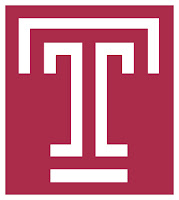By Hank Layton
The October
LSAT is Saturday. Hopefully if you are taking said exam, this is not a
surprise.
Before you sit for what will likely be the most important test of your life (no pressure or anything), you’ll have to make it through these last few days. Here’s how you can do just that the smartest way possible:
Keep Taking LSAT Practice Tests, But Don’t Overdo It – At this point in your LSAT prep, you’re not going to learn anything new. You should be refining your skills. Don’t overdo it on PE’s this week. This week should be one of the more lax of the last couple months. Especially Friday, the day before the LSAT. Get away from the books and have a relaxing, headache-free day. Again, you’re not going to learn anything new at that point.
Make the LSAT Practice Tests Realistic – The more your practice tests mimic real testing conditions, the better you’ll do on LSAT test day. This means that you should take practice LSATs in a test-like environment, without eating or drinking or taking unnecessary breaks. Whenever possible, your LSAT practice tests should also be taken in the morning. If your practice feels like the real thing, then the real thing won’t feel like a big deal, and you’ll feel a lot less pressure. If you can simulate noisy LSAT proctors, by all means do. They’re sure to be there Saturday.
Regulate your Sleep – This isn’t exactly a study habit per se, but it’s very important. For the rest of the week, you should go to sleep and wake up at the same time everyday. You want to be rested and refreshed Saturday morning, and that’ll be hard to do if you’re waking up a lot earlier than normal all of a sudden. Go to bed at, say, 10 p.m. every night, and wake up at, say, 7 a.m. each morning, or whenever you plan to wake up on LSAT test day.
Also, be sure to visit your LSAT testing center sometime this week so that you know the exact route to take and where to park. You don’t want to be one of the many students we hear from who miss out on the LSAT because they didn’t think ahead. And make sure you have all the test day materials required by LSAC.
Before you sit for what will likely be the most important test of your life (no pressure or anything), you’ll have to make it through these last few days. Here’s how you can do just that the smartest way possible:
Keep Taking LSAT Practice Tests, But Don’t Overdo It – At this point in your LSAT prep, you’re not going to learn anything new. You should be refining your skills. Don’t overdo it on PE’s this week. This week should be one of the more lax of the last couple months. Especially Friday, the day before the LSAT. Get away from the books and have a relaxing, headache-free day. Again, you’re not going to learn anything new at that point.
Make the LSAT Practice Tests Realistic – The more your practice tests mimic real testing conditions, the better you’ll do on LSAT test day. This means that you should take practice LSATs in a test-like environment, without eating or drinking or taking unnecessary breaks. Whenever possible, your LSAT practice tests should also be taken in the morning. If your practice feels like the real thing, then the real thing won’t feel like a big deal, and you’ll feel a lot less pressure. If you can simulate noisy LSAT proctors, by all means do. They’re sure to be there Saturday.
Regulate your Sleep – This isn’t exactly a study habit per se, but it’s very important. For the rest of the week, you should go to sleep and wake up at the same time everyday. You want to be rested and refreshed Saturday morning, and that’ll be hard to do if you’re waking up a lot earlier than normal all of a sudden. Go to bed at, say, 10 p.m. every night, and wake up at, say, 7 a.m. each morning, or whenever you plan to wake up on LSAT test day.
Also, be sure to visit your LSAT testing center sometime this week so that you know the exact route to take and where to park. You don’t want to be one of the many students we hear from who miss out on the LSAT because they didn’t think ahead. And make sure you have all the test day materials required by LSAC.
You should know by know whether or not you’re ready for the
October LSAT. For those who are ready, good luck. For those who aren’t, I guess
we’ll see ya in December.
Hank Layton runs Most
Strongly Supported — the LSAT and
law school admissions blog for Blueprint LSAT Prep. For more info on the LSAT, visit Blueprint’s
Free LSAT Help area.





















